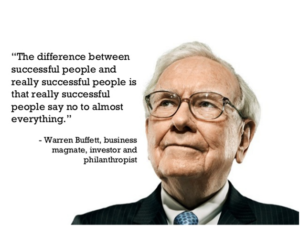Tag Archive for: leader
Confidence is defined as “a feeling of self-assurance arising from one’s appreciation of one’s own abilities or qualities.” You know there’s something about a confident person. They are individuals who walk with a certain air about them….not arrogance or hubris, but a quiet confidence. They may not know how to do it all, but you wouldn’t know that by seeing them in action. I think of confident leaders I’ve known who were so certain of themselves that I was instantly drawn to them, as were others.
Confident people engage other people.
Well, how do you get there? What is it about confidence? What is that aura that is so engaging and compelling? And how do you develop greater confidence for yourself?
Confidence is a muscle that you can learn to grow and strengthen. Just like progressive resistance exercise which increases weights to build muscle, confidence grows as you use it more and more and in a variety of situations.
It can help you to sell your agenda, whatever it is. Whether trying to persuade your boss, or a hiring manager through an interview, a confident attitude can help you to succeed. Many times, the individuals you are meeting with are looking for that confident attitude in those situations. Demonstrating confidence goes a long way to “close the deal” on your behalf.
Here are a few exercises for that confidence muscle:
1. Think back to a time when you were highly confident and successful. What were you doing in those situations? What made you confident and self-assured? Find a way to bring that experience into your current one. If you could do it then, you can do it now. What would need to be present to feel like that again?
2. Sometimes a lack of confidence can equal fear about a situation. Understand and acknowledge the fear and hesitation. It’s there for a reason. Then (as a wonderful book stated), “Feel the Fear and Do It Anyway” (Susan Jeffers). That thing you most fear can be something that strengthens your confidence muscle, and becomes a “must do.” Now, if it’s something like public speaking, start small with speaking in front of a few people and work your way up.
3. Find a role model of confidence around you. It could be a leader or a peer or someone who just embodies that bold yet measured self-assurance. Think about how this person would handle the situation where you need more confidence and “channel” that person’s confidence to help you through.
4. Fake it till you make it. I’ve used this one many times in addressing large meetings. As you look out over the crowd, it can be intimidating. But when you take on a persona of confidence, it becomes much easier. It takes some practice, but I can tell you it is doable!
5. Take three deep breathes and lift your arms up in a V. Feel your power all around you. It’s who you are and it will bring you confidence. I suggest this to many of my clients, especially before an interview, taking some time alone and feeling your power. Amy Cuddy writes about power poses and how these can help lift the confidence factor. It’s definitely worth a try!
Confidence is an important skill to learn and build. It takes some practice to build but the benefits can affect every aspect of your life.
ACTION CHALLENGE
Time to express greater confidence in all that you do. Set a goal to move toward a more confident you this week by using some of the techniques here, or on your own.
I would love to hear your thoughts.
Many times, throughout your career and life, you may be asked the question, “Can you tell me about yourself?” It can occur particularly in an interviewing context. Going through job interviews, it’s a standard first question. I am often asked this question, especially by prospective clients. It can also occur in networking situations or in meeting a new boss or co-worker.
How do you answer the question, “Tell me about yourself?”
Take the time to think about the story of your career. Now, this isn’t a way to replay your resume, rather it’s an expression of the achievements of your career, education, career branding and personal value proposition.
There are several advantages to putting together a career narrative:
Some jobs are now requiring career narratives as you apply for work. A written narrative about your past and what you’re bringing to the prospective job is important. In addition, a narrative will help you to facilitate coming up with that elevator pitch about yourself and what you bring to the table. Finally, the career narrative can also help you to update your resume and Linked In because it focuses on accomplishments and results-driven as well as branding and value proposition.
This exercise can help you to see all that you have accomplished to this point in your career and it can be illuminating.
Take some time out to put pen to paper, or fingers to keyboard, and focus on expressing this narrative, step by step:
1. Start by thinking about your education, training, certifications…all that you have learned. What influence has that had on where you are now and what you do? But what if you didn’t graduate from college? On the job training is also educational. Focus on the learnings acquired and how those have shaped you.
2. Now consider your work experience. If you’re still in school or recently graduated, consider any part-time or temporary jobs you may have held. Think in terms of what you’ve most enjoyed, what has given you the most satisfaction? What stands out as significant accomplishments? You want to focus on writing about results and outcomes, not just activity, but there is a place for this as well.
3. Consider your strengths and weaknesses and write these down. This is also useful because you will usually be asked questions about this in an interview. When addressing weaknesses, be sure to also address how you are or want to address these in the future.
4. What do you have a passion for doing? What are your short and long term career goals? What’s important or relevant about those goals to you? How do these goals align with your education and experience?
5. Think about career brand and value proposition. Career brand is best defined as your specialties, your service, what you’re known for. What are those things that others have given you positive feedback around? Value proposition defines those unique and remarkable characteristics that make you stand out from the rest. What are those things that make you the best candidate for the job you’re in or that you’re going for?
6. Review what you’ve written. How can you synthesize this into a pitch about yourself? An example might be talking about past experiences and proven successes, strengths, abilities, and current situation. Example for myself: My background has been in senior technology management for a Fortune 100 corporation, focused on results that saved expenses and leveraged innovative new processes and technologies. I loved technology and leadership, but it’s the people that have always made a difference for me. Leading, coaching, and mentoring individuals. This led to my next step as a career coach entrepreneur, where my branding is “Untangling career challenges and choices through coaching for courageous results-oriented clients who need solutions NOW.” I make a difference in coaching you through a change in your career or life.
7. Do you need to incorporate any of these changes into your resume and Linked In? If you haven’t updated these in a while, it’s a great time to work on this.
ACTION CHALLENGE
The career narrative is an important step in defining what you’re all about. Take some time to prepare this important document for your career.
I would love to hear your thoughts.
“Um, NO, I think not, well, maybe not, um, OK, not right now, that is of course….unless you really need me to.”
How good are you at saying “No?”
The word “no” is truly a hard word to remember and to use effectively. Need more control over your time and your day? There are so many time management tools out there including prioritized lists, calendars, daytimers, Franklin Covey Timers, Outlook, etc. etc.…all in an attempt to get more done every day.
Yet sometimes, you can free things up considerably by just saying the magic word, “No.”
Consider this quote by Tony Blair, former Prime Minister of England: “The art of leadership is saying no, not saying yes. It is very easy to say yes.”
Where do you draw your boundaries?
Boundaries can disappear in our lives for several reasons:
1. I can’t possibly say no to _______________. There are certain people or situations in our lives that are especially difficult to say no to. It could be your boss, your parents, your children, your friends.
2. You may have people around you who are skilled at getting you to do what they want you to. They don’t mean any harm…they just want to take up your time with their needs and requests and know exactly which of your buttons to push.
3. You want to please people.
4. You feel validated or needed through requests of your time.
5. You would feel so guilty (similar to number 1) if you said no.
6. You think it’s a part of your job to never say no.
7. As Tony Blair stated above…it’s just easier to say yes and let your boundaries be crossed than to say no and deal with the fallout from that…negative reactions from others or yourself.
If you recognized yourself in any of these statements, then your boundaries may need a little tune-up to understand where they are and how to effectively protect them.
Many times you don’t even realize your boundaries are being crossed, but a sure-fire indication is if you find yourself feeling overwhelmed, or resenting what you’re doing, or both.
I served on the board of directors for a non-profit. It was a gratifying yet very time-consuming commitment. I was finally forced, with commitments around growing my coaching business to bow out and resign. A few months later, I was asked if I could help with something. I had already said I was done, but they were asking me so persuasively. It took a lot of conviction, but I said I was so sorry and no. Then a few weeks later, I received a beautifully engraved crystal bowl as a thank you for my years of service, with a note asking for my help. This was a huge test. They really needed me!
One of the things I did was to stop and think before I said yes. I realized that there were other capable board members who could step up to the plate as well. It was so difficult, and guilt provoking, but yet again, I had to say no.
I was saying no to protect the prioritization in my work and life. But it takes effort to determine, ahead of time, what is most important in your life. An examination of boundaries can begin there…by prioritizing where and how you want to spend your precious time, guilt-free.
Saying no can mean overcoming guilt. It’s about really examining what your motives are, and deciding the best option for yourself at this time. Saying no means building up security within you that says “I don’t need this acknowledgment; I can do this for myself.” Saying no takes practice, but like all things, it helps to reconsider your goals and priorities before launching into the yes.
If saying no is just too difficult, try this response I once learned from a very wise woman, “My answer is no at this time but if I can, I’ll get back to you.”
ACTION CHALLENGE
What do you need to say NO to, today? How can you constructively look at keeping your boundaries and making informed decisions on what to take on?
Lupe S. Wood, MS, PCC, is a certified Career/Executive Coach. She coaches individuals and leaders to career fulfillment, transition, and advancement. She also consults for results with businesses and solopreneurs. Her background includes 12 years in senior leadership for a Fortune 100 corporation and 7 years as a coach, with a Master’s degree in Organizational Effectiveness and Executive Coaching.
For more information, please visit my website at www.upcoached.com
Networking is an essential skill to master.
A strong network can enhance your career progression as well as support you in your current role. This doesn’t just include networking outside of your organization with other professionals. It can also mean networking within your company, getting to know leaders, peers, and others. Personally and professionally, networks can support what you’re doing and help you to do it better. This is basically a group of people with whom you can connect and share professional experiences and common interests. A strong network can give you a huge advantage. For myself as an entrepreneur, a network is critical. For those of you in nonprofit/volunteer situations, networks can help you as well. A network is truly a valuable tool.
In addition, 85 to 90% of jobs are acquired through networking…not job boards. That’s an amazing statistic and another huge reason why networking works.
It’s surprising to learn that many people do not have networks. Great networks take time, strategy, and care. Networks are NOT just about getting as many contacts on Linked In as possible, but that is a way to start to build a base.
There are basically two components to networking…Building it, and Working it!
Building It
Look for networking opportunities everywhere. Start with Linked In. This is such a great tool for networking. Linked In is very helpful in connecting you with others. The “My Network” tab will show “People you may know.” You will see individuals on Linked In who have some connection to you (mutual connections). Start by Linking into these. As I say to my clients…”What’s the worst that can happen?“ So, they don’t respond, no big deal. Always send a little note letting them know that you would like to connect.
Never refuse a Linked In connection to you. Understandably, there are always worries about identity theft, etc. If you don’t know the person at all and see nothing in common, perhaps not best to allow them to connect, but otherwise, connect away. Especially if Recruiters want to connect…there’s only so much they can do on Linked In (or you would report them), and they may prove a valuable resource at some point.
Commit to spending just 10 minutes a day building your network through Linked In.
Conferences are outstanding networking opportunities. I met a fellow coach at the last conference I went to, and all I did was sit next to her at a lunch counter and introduce myself. She has become an amazing inspiration for me as a coach. If you aren’t making new professional contacts at conferences, you’re missing a great opportunity.
The cafeteria at work is a great place to network, presuming that people do eat at the cafeteria, or maybe it’s a break room. In my corporate experience, the former Chairman of the Board/CEO used to take time at lunch to randomly sit with individuals at the cafeteria. I saw him do this several times. If you’re a leader, consider networking this way to get a pulse on the organization. Never eat lunch alone.
Notice that I didn’t mention “networking events.” My experience (and those of most clients) just hasn’t been very valuable in these types of groups; however, with a group that has common interests, there are some possibilities here…similar to Conferences.
The key here is to build your “network” team with as many people as possible.
Working It
Linked In again offers a great and simple way to work your network. Linked In will inform you on a daily basis of birthdays, promotions, new assignments or new jobs for your contacts. This is a great way to reach out, congratulate, and start up a conversation.
You can also reach out to contacts on Linked In to say hello and ask how things are going. This gives you the connection to start a dialogue. You want your contacts to remember you! This can become a part of your 10 minutes a day on Linked In.
At work, keep track of birthdays and anniversaries there as well. Great way to stay in touch.
Set up a time for coffee or lunch with others. We all need a little caffeine in the morning or to eat lunch. Why not combine this with an opportunity to meet with your network? Find out how they’re doing and share your current situation.
Similarly, a little dinner or drinks after work as appropriate can also be an option. The goal here is to keep in touch with your contacts and always get to know them better. The important point is that these aren’t just social events…these are targeted opportunities to build alliances, discuss opportunities, etc.
So, you may be thinking, how do I find time for all of this in my busy day? My recommendation is to set goals, (how many contacts you want to get in touch with per week, how much time can you spend (like 10 minutes per day) building your network. Challenge yourself to include this important work within your day. It really can build your career, your current job skills, allow you to assist others, and create a team of strong relationships.
ACTION CHALLENGE
This week, work your network by either growing it or working it. Use this week to shore up your Linked IN profile to All-Star status (Linked IN gives you that status when you’ve completed your profile plus). If you have a great network, then take some time this week to reach out to some of your contacts you haven’t seen/heard from in a while and touch base.
Make a plan for networking in the future.
Would love to hear of your journey to becoming a great networker!
Taking a couple of weeks off…my next posting with is 6/11/18!
Lupe S. Wood, MS, PCC, is a certified Career/Executive Coach. She coaches individuals and leaders to career fulfillment, transition, and advancement. She also consults for results with businesses and solopreneurs. Her background includes 12 years in senior leadership for a Fortune 100 corporation and 7 years as a coach, with a Master’s degree in Organizational Effectiveness and Executive Coaching.
For more information, please visit my website at www.upcoached.com
Are you interested in getting promoted? As a leader, I would often have employees in my office, both within my own division as well as from others, come to me with a similar question…
“What do I need to do to get to the next level up?”
These were usually employees who felt they had been passed over or perhaps that a promo was just overdue. There were also a few who had just gotten advanced and wanted to figure out how to get to the next level even faster. Whatever the reason, there can be a bit of a mystery around the process and it’s important to know how to navigate these waters to ensure that you maximize your opportunities fully.
Consider these options:
1. Find out what the criterion is for promotion in your organization by looking at other promotions. Yes, sometimes promotions happen and they may not seem deserved, but look at several promotions over time…what do they have in common? Try to determine the criteria. What were these individuals engaged in before the promotion? A visible project? Sitting in for their manager in key meetings? You can also talk to your boss or a trusted mentor to find out what criteria really stand out. I once asked my boss what I needed to do for my next promotion. He was a Vice President and I was hoping for promotion to that level. He responded that I needed to deliver something that is a total game-changer. While his answer was vague, it did help me define what would get me to that next level.
2. Know who is in the room making decisions about your promotion. If you’re in a smaller company, it may likely be your boss and his boss. In a larger corporation, succession planning is usually done with your boss, their peers, and the boss’s boss. Ask your boss how decisions are made for promotion and set up a plan to get visible and network with those other leaders. Visibility is key. I’ve been in many succession meetings where peers offered a candidate for promotion, but if none of us knew that person, it was usually a deal-breaker for them.
3. Have a great relationship with your boss. Get to know your boss and allow them to know you. It’s important to have a great relationship with them as they are key to your promotion. Network and keep communication channels open. Consistently outperform your goals and responsibilities. Become indispensable!
4. Learn to promote yourself. Have a strong career brand and ensure that others (boss, peers, etc.) know your work. Your work may be great and you want to be noticed without having to crow about it. But “crowing” about your accomplishments is so important. Whether it’s a monthly status report or some other vehicle, think of ways to ensure others know all that you are doing and contributing.
5. Focus on results. Always. A Field Vice President I worked with loved to say, “Results aren’t everything….they’re the only thing.” Set your goals to deliver results. Have metrics and measurements for the work you do. Work with your boss and others on these metrics and show demonstrated results. Rather than “participating” in something, focus on “delivering” something of value that has an impact.
6. Research where you are in succession planning. For most major corporations, there are processes for managing succession planning and one of these is the 9 Box. It defines a person’s potential in terms of performance, with titles such as “Key Player” or “Rising Star.” It’s important to know where you stand in succession and your boss is the key to this.
7. Find a mentor, coach, and/or sponsor. Mentors are people in senior positions in the organization that can give you valuable feedback. You usually aren’t in their reporting structure (sometimes you might be). Coaches can be internal or external advisors. Finally, Sponsors are those senior individuals who observe your work and decide to take you “under their wing.” They are essential to promotions, especially at higher levels.
Use these tips and techniques to move you closer to that promotion to the next level.
ACTION PLAN
Evaluate each of these and decide which one works best for you. Turn this into an action plan that you can create this week.
Lupe S. Wood, MS, PCC, is a certified Career/Executive Coach. She coaches individuals and leaders to career fulfillment, transition, and advancement. She also consults for results with businesses and solopreneurs. Her background includes 12 years in senior leadership for a Fortune 100 corporation and 7 years as a coach, with a Master’s degree in Organizational Effectiveness and Executive Coaching.
For more information, please visit my website at www.upcoached.com
Do you want more confidence at work and in other social situations? Whether you are a leader or an individual contributor, there is a certain amount of confidence that can help you in your day. People are naturally attracted to confident individuals, so this makes it an essential skill to develop.
Where does confidence come from? Are you born with it or can you develop it over time?
Building confidence requires work from the inside out:
Confidence begins within by knowing who you are, and this learning can be a continuous lifetime endeavor. Within knowing yourself, it’s important to start with strong self-esteem. Confidence is related to how well you think of yourself. A strong foundation of self-awareness can help you determine your self-esteem. Do you have trust in yourself? If not, others won’t either.
Know your beliefs and core values. This is where it can be useful to take assessments such as the Myers Briggs, DISC, Positive Psychology VIA Strengths, or Strengthfinders. These are all available online or in books. Understand your “go-to” style through your natural strengths and focus on these as you build confidence.
Know your strengths and weaknesses. Asking for feedback can be very helpful in this regard, as can 360-degree evaluations. You want to understand how you are perceived…it may be very different from what you think. Now, this one may pose challenges for you as it did for me. I always felt that feedback increased my vulnerability, and that was very uncomfortable. In retrospect, I now see appropriate feedback as the gift that it is and how it could have helped me grow even further in my leadership.
Be willing to admit mistakes. This allows you to take on a more approachable tone with others which is also a sign of confidence.
Understand the difference between confidence and arrogance. Arrogance is usually born out of tremendous self-doubt. It has no relationship to confidence in yourself.
Consider yourself the expert and assume this role without arrogance or excessive hubris. Sometimes you may need to do your research upfront to demonstrate competence as an expert. Once you do your homework, come across as the expert.
Remember the P’s: Presence, Posture, Poise, aPParel. All of these speak to your confidence factor. Develop a strong presence, executive presence if you are in leadership. Ensure you are always exhibiting good posture in sitting and walking. Poise is a gracious self-possessed way of being. Finally, apparel speaks to what you wear. The right clothing can give you a definite air of confidence.
Take a risk. Speak up in that meeting. If you feel the need to disagree, have something else to offer. Confidence builds from risk. If you don’t risk, you don’t strengthen that confidence muscle. You can practice and you can learn and you can study and you can think about it all day, but for the “rubber to meet the road” you have to take a risk. Notice that it is risky and not achievement per se, that builds confidence. What risk are you hesitating to make right now? Will taking that risk to build your confidence?
Be gentle with yourself. Just as when you’re working out to get fit, continue to find ways to work that confidence muscle into greater strength. Consider working with a Career Coach to strengthen your overall confidence in the situations you encounter.
Confidence can help you to avoid stress, work more effectively, positively influence others, and give you a greater sense of self-achievement and efficacy at the end of the day.
Is it time to put your confidence exercise program into place?
ACTION CHALLENGE
Think about a risk you can take. Start small. How can you experiment with risking and learning to build more confidence? Also, if you haven’t taken any of the assessments recommended above, this is a great time to start! Ask for feedback and truly listen to what is said.
Lupe S. Wood, MS, PCC, is a certified Career/Executive Coach. She coaches individuals and leaders to career fulfillment, transition, and advancement. She also consults for results with businesses and solopreneurs. Her background includes 12 years in senior leadership for a Fortune 100 corporation and 7 years as a coach, with a Master’s degree in Organizational Effectiveness and Executive Coaching.
For more information, please visit my website at www.upcoached.com
As a Career Executive Coach, I often work with clients looking for that next promotion. “When and how do I get promoted?” “Why haven’t I been promoted?”
I recall once being asked the question, “How can I get promoted without playing the office politics game?” This actually demonstrates a keen awareness that is, in fact, essential in advancement conversations. There is a political side to success in business, and it’s important to understand as it can contribute to your own career achievement.
A former boss once told me that politics are everywhere…any institution with people is bound to have politics because people are political. I remember not believing him at the time. I now believe what that old boss said so long ago. It really is human nature.
Given that politics are everywhere, it’s important to understand them in context and be savvy about what the political environment is for you.
For advice on office politics, I especially love Dilbert, the comic strip by Scott Adams. In my Corporate IT days, we truly related humorously to Dilbert’s stories and saw ourselves in most of the comic strips.
Here’s some of what Dilbert always knew:
The limitations of the pointy-haired boss: The pointy-haired boss was frequently a challenge to Dilbert’s intelligence and sanity. He often got it wrong and wasn’t a mentor to any of his employees.
What Dilbert could count on from his co-workers…Wally and Alice: He knew Wally wasn’t someone you could count on to get work done. Alice was very interested in upward mobility, yet had a certain bluntness to her communications.
What Dilbert could expect from his profession: As an engineer, he understood the challenges of the business and what implications this had. I remember one series where Dilbert competed against a monkey named Zimbu to keep his job. In fact, there were many monkey roles in Dilbert comics, ironically.
Dilbert shows us that you need to have a great relationship of mutual respect with your boss, as well as understanding the boss’s own political positioning. He also emphasizes that you take the time to know your peers…who can get things done in the organization. Finally, understand your own organization – corporation, startup, and everything in between, as well as your own profession.
Political savvy is knowing when to speak to whom about what. Knowing who can get things done for you and who can’t. A strong understanding of our goals and how those align with the political environment in which we find ourselves is helpful. Understand each personality and come up with strategies to handle.
Find a mentor, Career Coach, or trusted advisor who can help you navigate through the political environment. Where are the land mines and where are the safe spots? How do you get things done?
Take some time to map out the office politics you find yourself in. Look for the humor in the various relationships. Do you have a pointy-haired boss out there? Or maybe work with a Wally who’s just not too interested in doing a day’s work? It’s so important to laugh at ourselves as we navigate through this thing called office politics.
If there’s an office character in your office that is so difficult to get along with remember….if you don’t find ways to deal with them now (negotiation, not taking things personally, confronting), they have a habit of showing up again and again in your career, different names, and faces – same issues. Find a way to resolve them now by addressing the situation.
By the way, you can’t get promoted without office politics. Political savvy is a necessity at higher levels of the organization.
ACTION CHALLENGE
First of all, if you’re not familiar with Dilbert, I highly recommend one of the many books to get up to speed on his amazing world. Secondly, take some time this week to step back and look at the political landscape in your office. What do you need to do to build your political awareness? As a Career Executive Coach, I can help you put a plan together to navigate the sometimes choppy waters of office politics. Contact me.
Lupe S. Wood, MS, PCC, is a certified Career/Executive Coach. She coaches individuals and leaders to career fulfillment, transition, and advancement. She also consults for results with businesses and solopreneurs. Her background includes 12 years in senior leadership for a Fortune 100 corporation and 7 years as a coach, with a Master’s degree in Organizational Effectiveness and Executive Coaching.
For more information, please visit my website at www.upcoached.com
Are you thinking about changing jobs or careers? Well, you’re in good company. The average employee tenure at a job in 2018 in 4.2 years, according to the Bureau of Labor statistics.
Back in the day, there was a stigma attached to “job jumping” on your resume, and companies looked for stability in your background. After all, the expectation was that you would be at their company for a long time in the future.
This is definitely no longer the case.
How do you know when it’s time to leave your current job? Are there some signs and signals that a new job should be in your future consideration?
1. The work becomes so boring. You no longer find the work meaningful or fulfilling. “It’s just a paycheck, after all.” is your attitude. Or perhaps you’re not getting the kind of assignments you find challenging. It’s also possible that you’ve done the work for so long that it no longer interests you.
2. Steady complaining about your job…all of the time. Everything is wrong from the time you hit the door until you close your laptop at night. You have a bad attitude about everything and your family and friends are beginning to notice. Although this is sometimes hard to see, it’s important to understand when this is happening.
3. There’s a sinking, visceral feeling when you come into the office. This has happened to me working for a boss who was very challenging. When I parked my car in the morning and saw the building ahead of me, I got this unmistakable feeling of dread and upset.
4. You know you’re unhappy but you just don’t know why. There’s a certain unsettled feeling about your work. You aren’t sure what it could be…is it the job?
5. It’s time for a change…you’ve been at your career/job/location for so long. Or possibly, you dream about a location with better weather or you would love to see the changing seasons. Sometimes it’s just a longing for something different.
6. Dreaming about a different career or going into business for yourself is another possibility. This is a great opportunity to explore, but you keep putting it off. What if it doesn’t pay the same salary? What if I can’t get any business going?
7. There are hints…subtle and more direct from your current employer. These may be poor reviews, rumors of layoffs, challenging relationships with management, no promotion or salary increases in a while, or perhaps the company is in turmoil…stock price down, constant management changes.
If any of these ring true for you, is it time to consider alternatives to your current job? That’s really the place to start…what are the alternatives for your situation?
One of my clients found themselves in a situation where the rumors of downsizing were growing louder and louder in their company. This client hadn’t changed jobs in 20 years and there was a good bit of concern about what to do next.
We started with the basics…setting a vision for the future…..defining the new job/career from scratch to see and understand what is possible. I start with the future vision with all of my clients. It’s such an important picture to define clearly and comprehend as it sets a road map forward, and helps to define what the next steps are.
This client decided that they really didn’t want to work in such a negative atmosphere, just waiting for the next step to happen to them. By defining the vision for the future, the client was able to explore that they were ready for a new change in career…something less stressful and more meaningful. They made a decision to focus on working within non-profit organizations. As it happened, while we were working on the basics (Resume, Linked In, Career Brand, etc.), the company did eliminate the client’s position. They were able to collect severance to support the work that had already begun. It was a relief to my client that this work was already underway and they weren’t starting from scratch while out of work suddenly.
Similarly, a decision can also be made to stay in the current job, especially if there’s a need to mitigate risk in the job search. In that case, I always recommend applying for and interviewing for a new job once a year, just to see what your value is in the marketplace. It keeps your job hunting skills fresh and allows you to see the possibilities for yourself, which can be very eye-opening. It’s a great way to reduce your risk and keep you ready for any changes in the future.
It may be time for a change and all it takes is that first step forward.
ACTION CHALLENGE
Are you ready for a new job/career? Consider exploring the options with a trusted advisor, family member, or Career Coach. Change is possible and waiting for your very next move.
Lupe S. Wood, MS, PCC, is a certified Career/Executive Coach. She coaches individuals and leaders to career fulfillment, transition, and advancement. She also consults for results with businesses and solopreneurs. Her background includes 12 years in senior leadership for a Fortune 100 corporation and 7 years as a coach, with a Master’s degree in Organizational Effectiveness and Executive Coaching.
For more information, please visit my website at www.upcoached.com
Every year it begins the same way. I have a grove of tall trees in the backyard and usually in mid-August, sometimes later, I see it. There it is. There is an unmistakable yellow gold leaf amongst the bright and dark green hues of the trees. It’s my first golden tree leaf; the first sign of the beginning of autumn and the end of summer.
The promise of leisurely days and vacations has come to an end as the new season begins and we look to a more structured schedule.
At this time of the year, students return to school to begin the new year. The school experience always allowed you to forget the past and focus on the promise of a new year ahead. How do you extend this to starting a new season of your life?
Every September, as the new school year would begin for me, I always thought of it as an opportunity to wipe the slate clean and start anew. There is a transformative power in the beginning of something, and each new grade, or year at college/grad school, was no exception for me. The structure of the school is an interesting one. You really do “start over again” each year.
What rituals would you use to mark the new school year in the fall, as you were growing up? For me, it meant new pens and (pin-point sharpened) pencils, and a curious item called the Pee-Chee folder. In Southern California, a fresh, peach-yellow Pee-Chee to carry your homework was an essential way to start the new school year.
All of these preparations marked the beginning of a new season…a year of learning, a year of challenges and experiences, a year of setting and achieving goals, toward the ultimate milestone of graduating to the new grade/year in the spring. And it all started with a sharpened pencil in the fall!
A season change can be a focus change, just as most of us experienced through the structure of the school. What are some things you can do to embrace the new season ahead?
1. Take an assessment of where your career and life is at, especially against your goals for the year. Are you where you truly want to be? You have 4 more months in this year. What can you do to finish the year strong?
2. Set new goals. Consider the slate wiped clean. What new goals would you like to pursue starting now?
3. What is possible in your role at work? What new rituals would work for you? Do you need to come in an hour earlier to focus on time alone? Do you need an effective time management system? Think of adding a few new rituals this season to your work routine. A new season can also trigger a new focus on what you’re doing and where you’re going. Rituals are important. They help us to symbolize the milestones of our transitions.
4. Be kind to yourself. Always practice self-forgiveness. That was me then, but this is me now. Sometimes we refuse to forgive others or the past. This time, be kind to yourself and understand that you really are always trying to do the best thing and you can start over.
5. Adopt the school ritual of “wiping that slate clean” and starting over again. How do you “wipe the slate clean” if that would help? What are some things you need to let go of and plan to move forward on? In junior high school, I actually struggled with my Spanish Language grade (believe it or not!). Every year, I was determined to do better and the start of the new school year was a huge motivator for me.
6. Now is the time to plan for the holidays ahead. Rather than let the holidays come upon you, put together a plan for where you will go (or host), any gifts you may want to think about buying (great sales in the fall), and generally how you want to handle these sometimes stress filled but wonderful times.
7. What’s on your bucket list? Don’t have one? Whatever age you are, this is a good time to put one together. A bucket list has all of those experiences and activities you want to have during your lifetime. Always great as a focus area.
The lesson of the fall season can be a sense of renewal. What does renewal mean for you at this time?
ACTION CHALLENGE
With this change of season, from summer into fall, what change or renewal do you want to pursue?
What are the “sharpened pencils” and “new Pee Chee’s” in your quest to pursue your work and life goals? Take some time during this transition time to find a new focus and wipe slates clean.
Lupe S. Wood, MS, PCC, is a certified Career/Executive Coach. She coaches individuals and leaders to career fulfillment, transition, and advancement. She also consults for results with businesses and solopreneurs. Her background includes 12 years in senior leadership for a Fortune 100 corporation and 7 years as a coach, with a Master’s degree in Organizational Effectiveness and Executive Coaching.
For more information, please visit my website at www.upcoached.com










